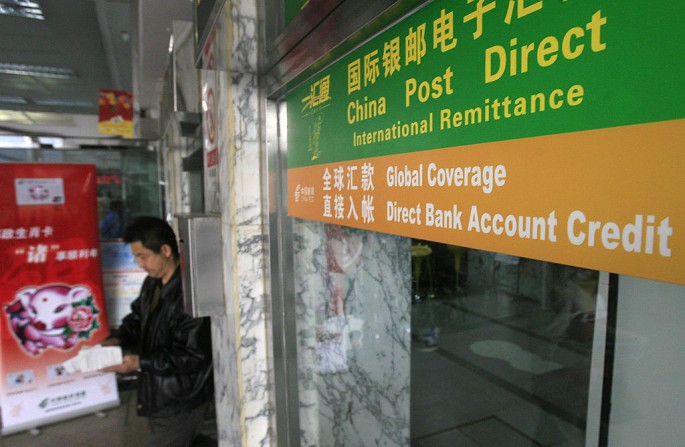State-run Postal Savings Bank of China Co. made the world's biggest initial public offering (IPO) this year after it was able to raise $7.4 billion in its offering, the Wall Street Journal reported.
People privy to the matter said that the bank, which is the country's sixth-largest lender, agreed on Wednesday, Sept. 21, to sell its shares in its Hong Kong IPO for 4.76 Hong Kong dollars (61 U.S. cents) each, the biggest offer since Alibaba made its $25 billion offering two years ago.
The report however, said that 80 percent of the amount raised came from a group of six large state-owned companies, which include a shipbuilder, a port operator and a power company, that bought the shares before the price was set.
The bank's stock will be traded in Hong Kong starting on Sept. 28, the report said.
It has become common practice on the Hong Kong exchange, especially for mainland Chinese companies, to gather "cornerstone" investors to establish the foundation for IPOs. This strategy is important especially for IPOs that are not popular for global investors but ensures success for others, such as Postal Savings Bank.
But others like Joshua Crabb, head of Asian equities at London-based Old Mutual Global Investors, did not invest in the IPO. He said that Chinese banks are riddled with bad loans and Postal Savings Bank only has a smaller ratio of bad loans compared to the others.
Since 1919, the country's post office has been offering saving deposit services and it was not until 2007 that Postal Savings Bank became a separate entity, becoming the youngest among state-owned commercial banks.
The bank has nearly 40,000 branches, attached to post offices across the country, including the rural areas.
Despite this, some investors are concerned about the bank's $37.2 billion of loans to China Railway Corp., its biggest borrower.
"It could be a problem, because as the economy slows down, then railway construction will be affected . . . China's Big Four banks seem to have a more diversified business model," Andrew Xia, chief research officer at Chinese wealth-management firm Noah Holdings Ltd, said.
Aside from that, the bank has a higher valuation than the larger local peers, which makes it difficult to attract global investors.
The recent IPO has placed about $50 billion valuation on the bank. Last year, the company earned a net profit of abour $5.2 billion, an increase of 7 percent from the previous year.
In Dec. 2015, about $7 billion of shares in Postal Savings Bank were bought at a cheaper valuation of roughly $41 billion by high-profile backers such as J.P. Morgan Chase & Co. and UBS Group AG.
Postal Savings has also formed strategic alliance with technology companies such as Ant Financial Services Group, Alibaba's financial affiliate, and Tencent Holdings Ltd. In a bid to modernize its business and bring it closer to the standards of global peers.
Its cornerstone backers included electricity giant State Grid Corp. and China Shipbuilding Industry Corp., which took $5.7 billion-worth of combined shares of the offering.
The IPO is part of the government's efforts improve the banking industry as well as advance the country's corporate reform agenda.



























